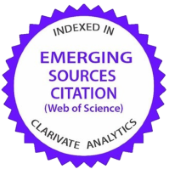Utilizing Machine Learning for Analysing Digital Marketing's Influence on Gen-Z Travellers’ Destination Selection
DOI:
https://doi.org/10.29036/jots.v15i29.853Keywords:
Digital Marketing strategies, Tourism, Machine Learning, Logistic regression, Neural network, Gen-ZAbstract
Digital marketing significantly influences travellers’ decision-making processes. This research aims to analyze the specific digital marketing strategies affecting Gen-Z travellers’ decisions. Machine learning techniques were employed to uncover key insights. Data were collected through a survey using a convenience random sampling of 346 university students in Thailand. Correlation analysis and machine learning approaches, such as logistic regression and neural network analysis, were used to explore the relationships between various digital marketing strategies and their impact on Gen-Z travellers’ destination choices. The findings indicate that Online Travel Agency (OTA) websites exert the most significant influence on Gen-Z travellers’ decision-making processes, with an odds ratio of 1.6879. This is followed by the use of social media marketing strategies and businesses having their own websites. To validate these results, an Artificial Neural Network (ANN) technique was also employed, confirming the importance of rankings derived from the logistic regression analysis. This research provides valuable insights into which digital marketing strategies most influence Gen-Z travellers’ decision-making processes. These insights can help tourism businesses make informed investments in digital marketing strategies, prioritizing those that align with the preferences of Gen-Z travellers.
Downloads
Downloads
Published
Issue
Section
License
Copyright (c) 2024 Journal of Tourism and Services

This work is licensed under a Creative Commons Attribution-NonCommercial-NoDerivatives 4.0 International License.
Journal of Tourism and Services (ISSN 1804-5650) is published by the Center for International Scientific Research of VŠO and VŠPP in cooperation with the following partners:
- Juraj Dobrila University of Pula, Faculty of Economics and Tourism, Croatia
- School of Business and Administration of the Polytechnic Institute of Setúbal, Portugal
- Szent István University, Faculty of Economics and Social Sciences, Hungary
- Pan-European University, Faculty of Business, Prague, Czech Republic
- Pan-European University, Faculty of Entrepreneurship and Law, Prague, Czech Republic
- University of Debrecen Faculty of Economics and Business, Hungary
- University of Zilina, Faculty of Operation and Economics of Transport and Communications, Slovakia
The publisher provides a free access policy to the Journal of Tourism and Services.





